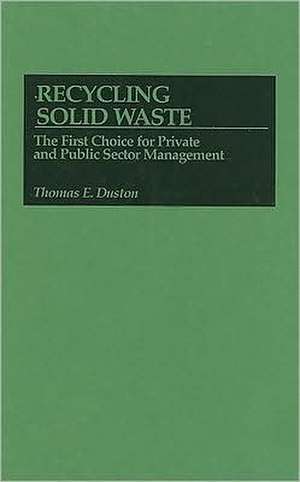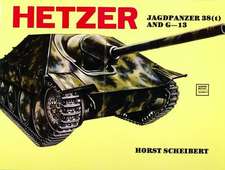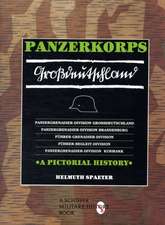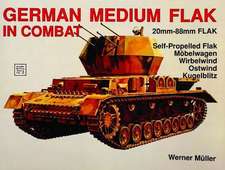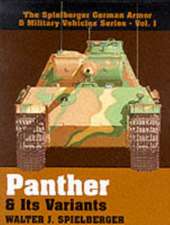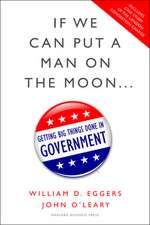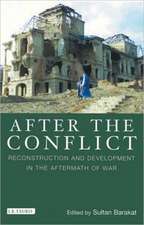Recycling Solid Waste: The First Choice for Private and Public Sector Management
Autor Thomas E. Dustonen Limba Engleză Hardback – 19 apr 1993 – vârsta până la 17 ani
Preț: 460.76 lei
Preț vechi: 637.42 lei
-28% Nou
Puncte Express: 691
Preț estimativ în valută:
88.18€ • 91.09$ • 73.39£
88.18€ • 91.09$ • 73.39£
Carte tipărită la comandă
Livrare economică 26 martie-09 aprilie
Preluare comenzi: 021 569.72.76
Specificații
ISBN-13: 9780899307541
ISBN-10: 089930754X
Pagini: 224
Ilustrații: references, index
Dimensiuni: 156 x 235 x 17 mm
Greutate: 0.45 kg
Editura: Bloomsbury Publishing
Colecția Praeger
Locul publicării:New York, United States
ISBN-10: 089930754X
Pagini: 224
Ilustrații: references, index
Dimensiuni: 156 x 235 x 17 mm
Greutate: 0.45 kg
Editura: Bloomsbury Publishing
Colecția Praeger
Locul publicării:New York, United States
Notă biografică
THOMAS E. DUSTON is currently Associate Professor of Economics at Keene State College of the University System of New Hampshire. He has a doctorate in economics as well as degrees in engineering, and paper mill management. He served as chairman of a committee which set up a recycling program in Chesterfield, New Hampshire, that is providing a 35 percent saving in the solid waste budget of that town. Various sections of this book have been well received when presented to professional audiences of the Eastern Economics Association and the American Public Health Association, as well as to state and local business and citizen's groups.
Cuprins
Introduction and Organization of the BookThe Anatomy of the Solid Waste StreamFrom Trash to Market: The Stages of a Recycling ProgramThe Gains from Recycling: How to Measure Them10 Questions You Will Be AskedSetting Up a Recycling PlanEvaluating a Recycling ProgramThe Microeconomics of RecyclingLarger Issues: Integrated Waste Management, The 3 R's, and the Throw-Away LifestyleAppendixesReferencesIndex
